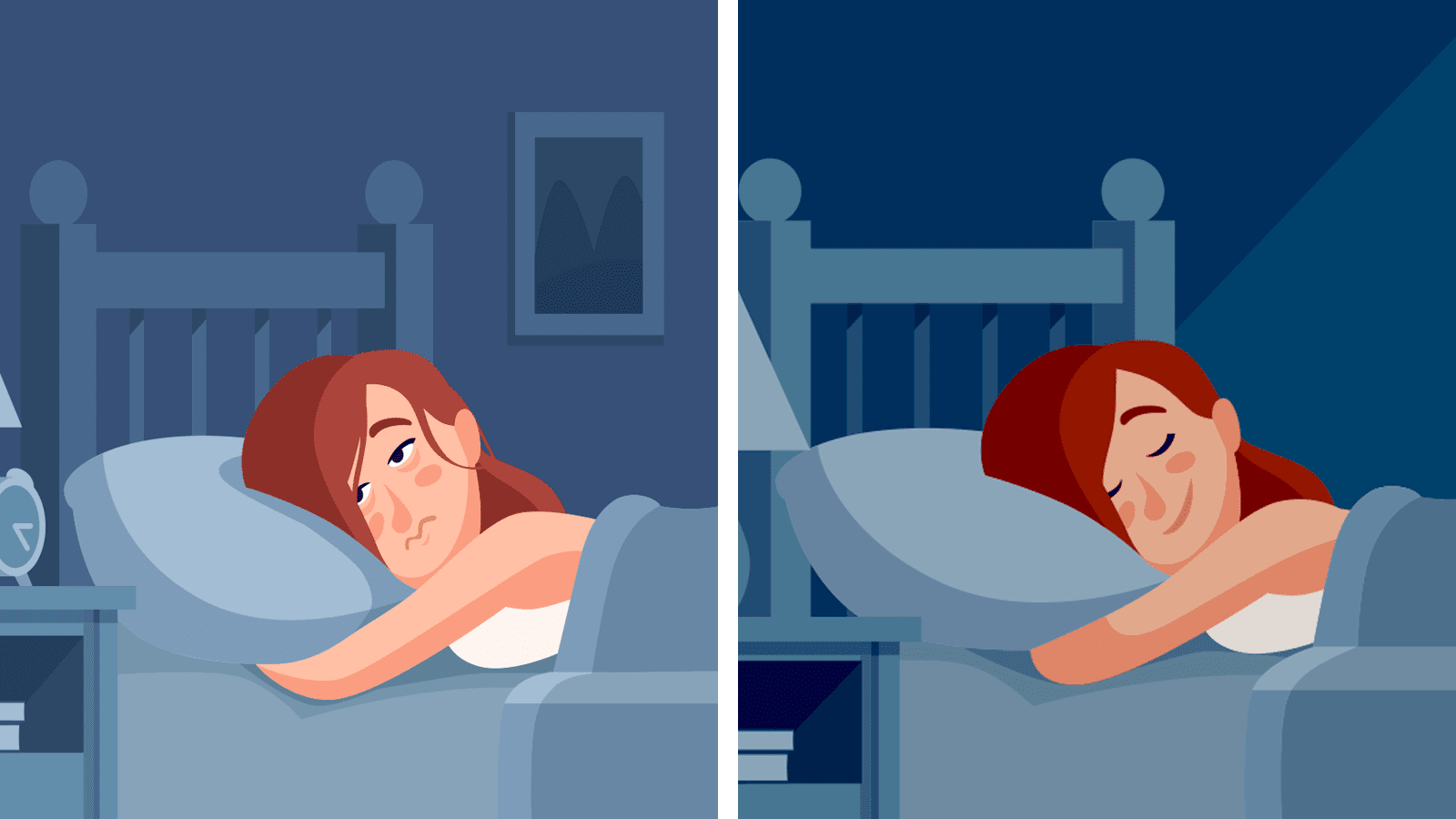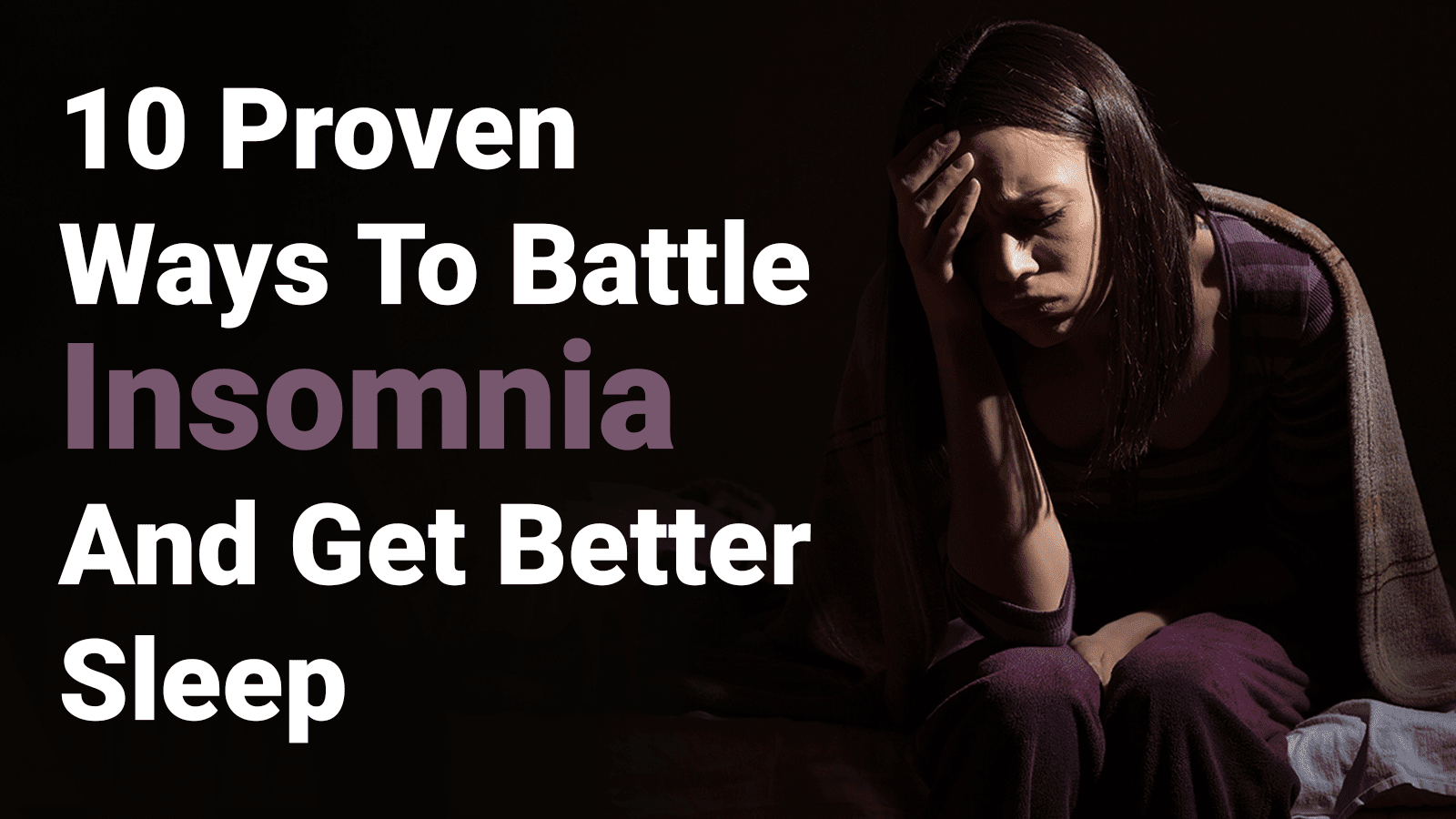Sleep is undeniably important to our health. Although we still don’t fully understand why we need sleep, the effects of a bad night’s sleep are readily evident the next morning. You would think that because of this, we would be extremely vigilant about our bedtime habits. Unfortunately, this is not the case. So, let’s discuss some evening habits that make it harder to fall asleep and how to avoid them.
“Sleep is that golden chain that ties our health and our bodies together.” – Thomas Dekker
Here Are 8 Evening Habits That Make It Harder to Fall Asleep
1. Using electronic devices
Screens from electronic devices emit blue light, which mimics the light we receive from the midday sun. In turn, our body’s ability to produce melatonin, the sleep hormone, gets suppressed. As a result, we don’t feel sleepy.
The easiest way to fix this is to stop using all electronic devices at least an hour before bedtime. Instead, try finding alternative non-electronic solutions for relaxing, like reading a physical book or relaxation stretches. Additionally, consider investing in an app that filters out blue-light, or even checking your phone settings. Both iOS and Android Oreo now feature settings that turn your screen warmer after sunset, so the light from your device no longer interferes with your ability to sleep.
2. Not having a regular bedtime
When we stay up late and sleep in for the weekends, it disrupts our body’s internal clock. As a result, it takes more effort to return to our previous wake-sleep cycle. The simplest solution, then, is to maintain a regular bedtime schedule regardless which day of the week it is, and to bid goodbye to late-night parties on Friday!
3. No wind-down period
While it may have been decades since we practiced a bedtime routine that involves a bedside story like we did in our childhood, experts say we never truly outgrow our need for a wind-down period. Therefore, not relaxing prior to sleep can result in tossing and turning for hours despite your exhaustion.
An easy solution to this is simply to block out an hour before sleep. Have all your must-dos wrapped up within the first 20 minutes. Then spend the next 40 minutes doing wind-down activities, such as taking a relaxing bath or reading a book. By the time bedtime rolls around, you should be able to fall asleep.
4. Drinking coffee late
As caffeine is a stimulant, it is common to see people picking up a cup of coffee later in the afternoon when we start naturally feeling tired and sleepy. This, however, is a mistake. Caffeine has a half-life of about five to six hours, meaning that half of the caffeine is still in your system all those hours later.
Therefore, drinking coffee too late in the day will still affect your ability to fall asleep. This has a simple solution: avoid drinking any caffeinated beverages after two p.m. if you want to make it to your midnight bedtime.
5. Eating heavy meals
Due to staying up later, we are more likely to eat heavier meals at night. Unfortunately, this contributes to our inability to fall asleep on time. After eating large amounts of food, your metabolism fires up accordingly in order to digest it. Additionally, a full stomach is also uncomfortable when lying down. These two conditions together make it difficult to fall asleep. To avoid this, ensure that you finish your dinner two to three hours before your bedtime.
6. Exercising before bedtime
With just how busy our modern lives can be, you may find that it is most convenient to exercise before bed. As healthy as this is, doing a strenuous activity before bedtime can make it difficult to fall asleep.
Engaging in vigorous exercise affects your bedtime twofold. Firstly, it artificially raises your body temperature. Because the body naturally cools down as it becomes relaxed and falls asleep, a higher body temperature can delay your bedtime. Secondly, you become highly stimulated as a result of exercise, which can also make it harder to relax and fall asleep. Try to stick to only light exercises before bedtime and tackle the heavier ones earlier in the day.
7. Going to bed too early
Common sense dictates that if we want to sleep earlier, we ought to go to bed sooner. However, this is not the case. It may sound counterintuitive but going to bed too early may make it more difficult to fall asleep on time. When you go to bed too early, you likely aren’t sleepy once you get in bed.
This results in tossing and turning, which can make you anxious and agitated over the lack of sleep. All this, in turn, makes you too stressed to fall asleep. The easiest way to fix this is to simply go to bed only when you are tired. That way, you avoid all the problems associated with waiting for sleep to befall you.
8. Using your bedroom for other activities
It is entirely common to watch movies in bed or study in our bedroom. Very likely you have spent hours binge-watching your favorite series in bed just because it positively happens to be the most comfortable place in the house. Unfortunately, this may be contributing to your inability to fall asleep.
When you perform other activities unrelated to sleep in the bedroom, the body and mind regard it as another workspace. As a result, it does not automatically wind down upon entry, and instead continues to assume that it must stay stimulated for work. To combat this, reserve your bed and bedroom for only sleep and intimacy. That way, you can train your mind and body to automatically associate this space for rest and relaxation and prepare accordingly upon entry.
Final thoughts
Considering just how crucial sleep is to our daily functioning, it is imperative that we avoid bad sleeping habits that can worsen our quality of sleep. By breaking these harmful evening habits that can make it difficult for you to sleep, and instead applying our suggested alternatives, you will find that falling asleep at your planned bedtime is not that hard. Getting enough sleep is vital to ensuring productivity, wellbeing, and positive thinking, so don’t take that for granted!
https://www.youtube.com/watch?v=sbCcRc2CwKg


















